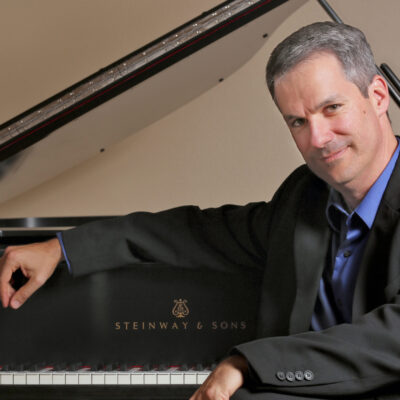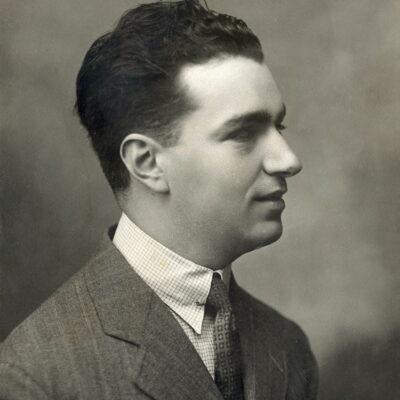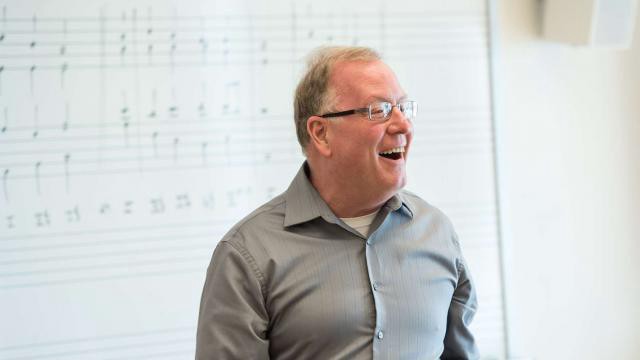Mozart’s true life story needs no Hollywood-style embellishments, says Music Director Donato Cabrera.

By California Symphony Music Director Donato Cabrera.
A murderously jealous rival. A mysterious commission from a “gray messenger.” Rumors of poisoning… If the circumstances of Mozart’s death at 35 read like a Hollywood script, that’s because the version of his history that most people know is largely just that.
Amadeus’ screenplay writer Peter Schaeffer never pretended for the movie to be anything more than good theater, describing it as “a fantasia based on fact… It is not a screen biography of Mozart, and was never intended to be.” Nevertheless, with its intrigue-filled plot, gorgeous sets and period costumes, and an unbeatable soundtrack, the 1984 box office hit and winner of 8 Academy Awards has cemented in the public imagination a number of myths that deserve closer examination.
Myth 1. Salieri: The Murderously Jealous Rival
“Mozart, Mozart! Forgive your assassin, Mozart!” Salieri cries out in the opening sequence of the movie, immediately sealing his reputational fate in history as the villain of the piece. Rumors of Salieri’s involvement in Mozart’s demise began circulating within weeks of Mozart’s death and contemporary sources indicate that Salieri even confessed to the killing in less lucid moments in the asylum towards the end of his life. However, up until then and for almost all his life, he dismissed the accusation.
As dramatically appealing as the idea may be — the bitter older rival, tormented by the emergence of the young gun rock star — Salieri almost certainly did not kill Mozart. For a start, Salieri was only 6 years older than Mozart, and an established composer, conductor and teacher in his own right when Mozart arrived on the scene. The two composers were contemporaries and may have competed for some commissions, however it seems they mostly viewed each other as peers. In 1786, the two even collaborated on a piece recently rediscovered by musicologists. Late in 1791, Mozart describes riding with Salieri in his coach to attend Mozart’s new opera, the Magic Flute. Afterwards, Mozart excitedly told his wife that Salieri “heard and saw with all his attention, and from the overture to the last choir there was not a piece that didn’t elicit a ‘Bravo!’ or ‘Bello!’ out of him…” Nothing here to suggest Salieri’s intentions toward Mozart might turn murderous.

Myth 2. The Mysterious Commission
We now know that it was local nobleman and wealthy landowner Count von Walsegg — not Salieri — who was behind the Requiem’s commission, and the mysterious “gray messenger” who acted as conduit between Mozart and his anonymous paymaster was likely a clerk employed by Walsegg.
The reason for the secrecy? Walsegg intended to pass the piece off as his own. For Mozart, whose tastes and expenditure regularly exceeded his income, the commission was a simple business transaction and whatever misgivings he had would have been eased by the promise of a generous pay off.
Myth 3. Murder by Poisoning
The notion that Mozart was poisoned is one that he himself related in letters to his wife as early as 1789, telling her, “Constanze, I am only too conscious, my end will not be long in coming: for sure, someone has poisoned me! I cannot rid my mind of this thought.”
Scholars have pored over Mozart’s letters and contemporary reports, trying to decode his symptoms for clues as to cause of death. Mozart’s burial in an unmarked grave precludes any modern-day exhumation and “cold case” analysis. Poisoning is certainly one of the most dramatic and screen-worthy explanations, but it’s just one of at least 118 documented theories on the subject, with others including obscure blood diseases, kidney failure, and even an under-heated pork chop. Most believe he succumbed to acute rheumatic fever.
To the Coda
Mozart’s illness came at the end of an intensely productive year that saw him deliver two operas, a clarinet concerto, and a cantata while also working on the Requiem. He took to his bed on Nov. 20, 1791, lethargic with fever, vomiting, and with swollen hands and feet. Yet still he continued to work on the Requiem.
On December 4, he appeared to rally, hosting friends at his bedside to sing through parts of the Requiem, however his condition deteriorated rapidly and soon after midnight on December 5th, 1791, Wolfgang Amadeus Mozart died at just 35 years old. He was buried two days later in St Marx Cemetery in Vienna.

On his death, wife Constanze contracted Mozart’s former pupil Franz Xaver Süssmayr to finish the Requiem based on Mozart’s notes. Quite how much he had to work with is unknown, but it’s thought that less than two thirds of the Requiem had been completed, including only 8 bars of the famous Lacrimosa. While other composers have also attempted to fill in the gaps, it is Süssmayr’s version that is most commonly performed.
Epilogue
In life as in death, Mozart’s story requires no Hollywood-style embellishment. He achieved more in his 35 years than any other composer before or since. “Prolific” doesn’t begin to describe it, with more than 600 pieces to his name, spanning a diverse range of musical forms including concerti, symphonies, chamber music, choral compositions, and opera. With each genre he tackled, he mastered, perfected, and advanced the form. And he did all this in half a lifetime.
In a poetically fitting end to his story, the Requiem he wrote for a stranger became his own. But just imagine what could have been, had Mozart been afforded a few more years. What treasures would we have now?
Experience Mozart live in action at MOZART SERENITY, Saturday, February 1 at 7:30 p.m. and Sunday, February 2 at 4 p.m. at the Lesher Center for the Arts in Walnut Creek. Single tickets start at $50 and at $25 for students 25 and under, and include a free 30-minute pre-concert talk starting one hour before the performance. Buy tickets online or call or visit the Lesher Center Ticket Office at 925.943.7469, Wed – Sun, 12:00 noon to 6:00 p.m.



